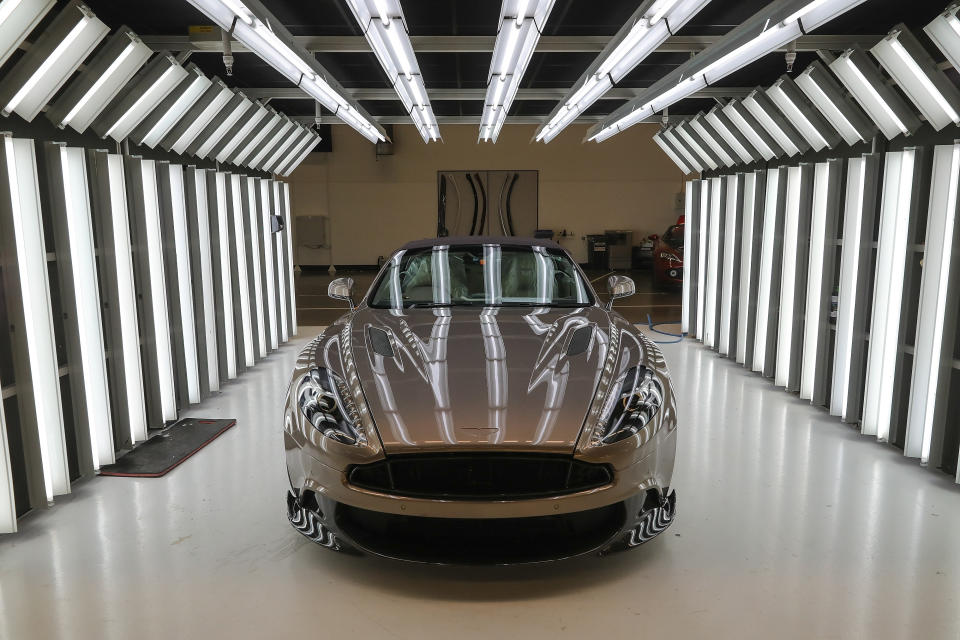Aston Martin: £1.6bn wiped out since October as car maker plans for Brexit hit
Shares in Aston Martin Lagonda (AML.L) were crashing on Thursday morning — down by 19% — after the famed British car manufacturer reported it lost £68m ($90.5m) in 2018 and was setting aside a cash stash of £30m to deal with a messy Brexit.
Shares in the company have fallen by about 40% since they were listed on the London Stock Exchange in October. That has wiped out £1.6bn from the firm’s market value.
“Investors pressed the ejector seat following Aston Martin’s latest update,” noted Connor Campbell, a financial analyst at the spread-betting firm Spreadex.
Aston Martin reported record-setting sales of £1.1bn in 2018, up 25% compared to 2017. However, it swung to a loss for the year because it had to pay a total of £136m to list the company on the London Stock Exchange. If you strip out those costs and taxes, it would have made a profit of £68m, but that’s still below the £73m it made in 2017.
Aston Martin boss Andy Palmer stressed on Thursday during a press conference that the results were in line with his own expectations and the company had delivered on its promises for 2018.
Brexit risks
Analysts had previously predicted that Aston Martin could suffer less than other auto manufacturers in the event of a messy Brexit and the imposition of new 10% car tariffs between the UK and European Union.
The firm’s wealthy international customers were expected to keep buying its pricey, exclusive cars regardless of tariff-induced price hikes or even the threat of an economic slowdown.
But Aston Martin is still preparing for the worst with its £30m Brexit fund.
“Plans are in place to mitigate the impact on the business from potential supply chain disruption should the UK withdraw from the European Union without an agreement or in an unstructured manner,” the company said in its annual results.
Aston Martin previously said it had boosted its stock of engines and components in case frictionless trade with the EU ended in March.
In spite of the risks in the UK and Europe, Aston Martin posted strong growth in China and the US last year. Sales in China were up 44% and sales in the Americas shot up by 38%.
The company reported it sold 6,441 cars in the previous year, with the average vehicle selling for £157,000.

Aston Martin, which is famous for supplying James Bond’s cars, has had its share of difficulties over the years and has been through multiple bankruptcies.
Palmer is credited with recently turning things around, helping the firm bring in £876m in revenue in 2017, up more than 71% from 2015. The company has also branched out into other luxury projects, including real estate and ultra-exclusive submarines, to diversify its sales.

 Yahoo Finance
Yahoo Finance 